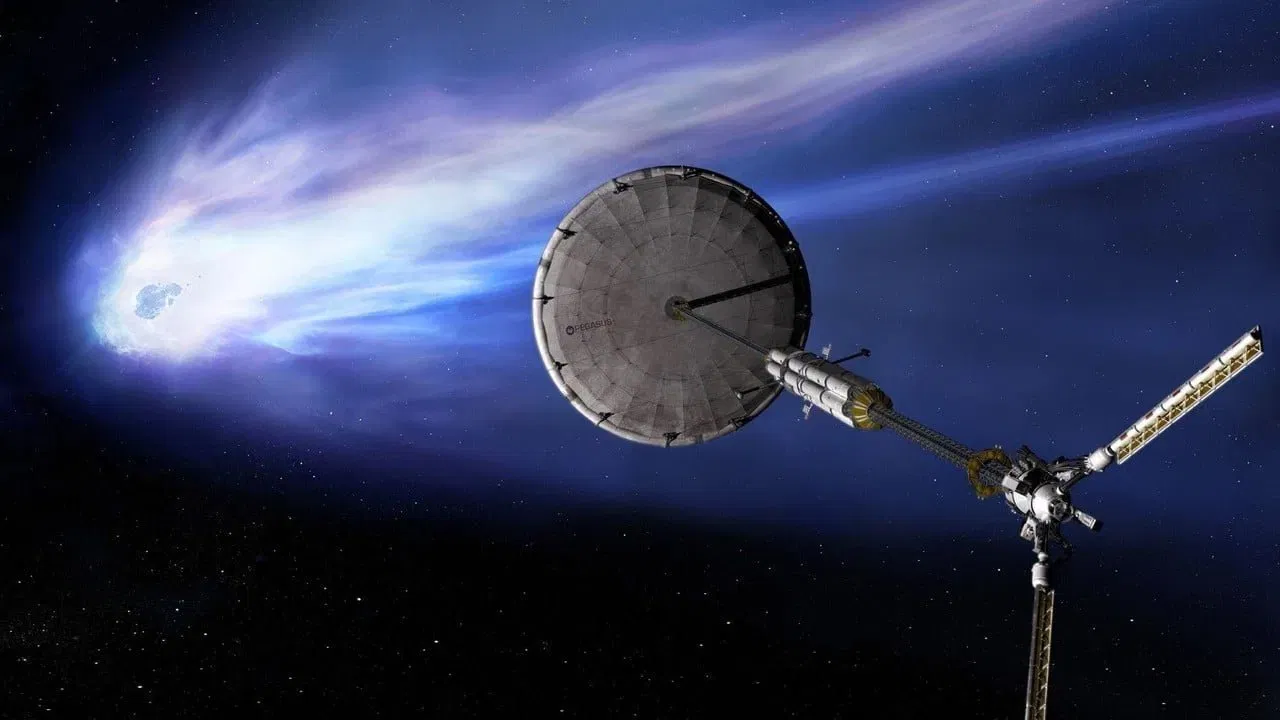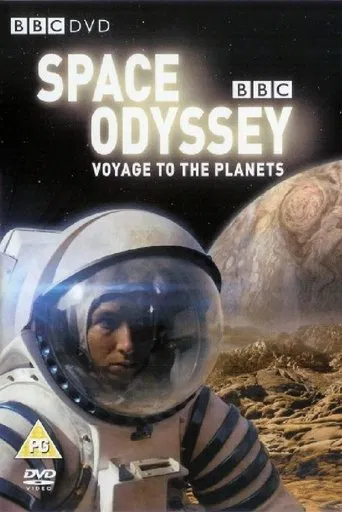

Intense, gripping, stylish and poignant
... View MoreThis is ultimately a movie about the very bad things that can happen when we don't address our unease, when we just try to brush it off, whether that's to fit in or to preserve our self-image.
... View MoreThere's a more than satisfactory amount of boom-boom in the movie's trim running time.
... View More.Like the great film, it's made with a great deal of visible affection both in front of and behind the camera.
... View MoreThis movie is an attempt to give a realistic portrayal of an extravagant space voyage. Instead of the usual small shuttle, we have a very large station.It may have been a good idea. But no one will ever know, unless it gets another edit. This is because the production value is probably the worst ever.I'm reminded of my days in a studio for free public access, and speaking with the technicians there. The common joke was "sound people don't know what the Hell they're doing." And here is a prime example.The director painstakingly tries for realism, and he gives a realistic look, but the cost is too great. You can't understand a word that is spoken in this poor sound environment. True, that's how NASA sounds on the TV set, but that's why few people bother to watch real live NASA space coverage, because it is impossible to know what people are saying.And anyone who avers that he or she does understand the dialog is a liar. Fact.I watched the show, but still have no idea what was ever going on. None of the actors could enunciate, and that is suspicious. Either they were poorly selected, or the sound crew was the worst ever. Since none of the actors were intelligible, that makes the sound crew look almost certainly to be the guilty party.The attempt for realism gave it an atmosphere of reality. This is what the director obviously intended, and the director was successful.Too bad you need a scorecard to follow along with what is happening. It is a poorly produced movie.
... View More1 let's suspend belief for a moment and let's stop pretending we could, might or ought know "how it is" or "ought to be" there in space. Human knowledge in that area is probably primitive as say middle ages maps are compared to today's satellite maps, so we really have no clue. 2 considering this is "just" a BBC TV docu-simulation, it gets much better than many big budget Hollywood blockbusters, and that is just incredible. 3 all in all, a show worth watching as it portrays the CGI enhanced and fictionalized account of what we know of the solar system this far. 4 probably fictionalizing and CGI-ing the whole thing is the only way to make it palatable to a large public. Ever watched clips from REAL space missions and REAL space probes? The quality is generally average to poor and the comparison would be between looking at a chest x-ray (and what it tells about the human body ) and compare it with a CGI-ed cyborg movie...which one would be most entertaining? Yet the chest x-ray is real, while the cyborg flick is just fictionalized SFX. 5 actors do a good job. None i'll tell my grandchildren about, but very fair for it being a BBC docu-simulation.
... View MoreThe subject of this film has always been of interest to me so I viewed it both for its scientific, visionary and entertainment value. Every time a film about space exploration is made, expectations rise as new image technology enables productions to be more realistic and precise. The production team succeeded in doing this to the point where, for someone less aware, the event could have actually been taking place. The landscapes on the planets, from the hot surfaces of Mercury to the frozen rocks on Pluto were just as I imagined them. Until recently we had to use our imaginations based often on artistic impressions gathered from visual astronomical data. But now that probes like the Pioneer and Explorer series have actually been close enough to take real pictures, then what we saw in this film I assume, is close to reality.I also was glad that Pegasis, the space vehicle, looked realistic and had a crew, it added some drama and again realism. They did not use silly-looking people dressed up in combat uniforms or looking like ex- army drop outs in the crew but members who could have easily been trained astronauts, carefully making sure that both gender and race were included. That is what a international crew would be.The space walk in Saturn's Rings and the release of the dead astronaut into them was extremely poignant and established the dangers of long term space travel. The hazardous landing on the Comet and the subsequent expelling of black ice from it as turned into the sun, nearly destroying the space vehicle, further demonstrated the dangers. One problem that the film did not deal with was the time delay in signal propagation from Earth control to the space vehicle, although being stated as being many hours it seemed that there was a direct link which is not possible over such vast distances. Earth took control over the space vehicle to move it so its shield blocked the bombardment from the Comet's tail when some members of the crew were injured during the bombardment, thus saving it from destruction but they could not have done that so quickly. This technical issue of transmission time always gives producers of space films a problem and although it did not spoil the film for me, it needs to be addressed if films are to be realistic.Finally and most importantly, films like this give us a vision of the future - one that is not so far away. It stimulates our imagination and invokes our quest for discovery. Most of the technology and knowledge to make such a journey is available. Reducing the costs and risks to an acceptable level is the challenge that confronts us. Earth is a home but not our prison, a point this film makes very well. Space exploration is there for everybody irrespective of nationality, religion, or culture and ultimately, maybe sooner than we think, we shall make the journey so vividly portrayed in this BBC production.
... View MoreAn excellent series, part drama, part documentary. Just a point of information about the communication lag mentioned by a previous poster. They did refer to a communication delay, but of course they edited things out to make the story flow faster. At one point on Mars, mission control detect a huge dust storm the landing crew can't detect yet and warn them with a message "dust storm on its way 6 minutes behind this message" which illustrates the time lag and just to clear up another point made, the lander on the comet isn't automatically controlled from Earth, but by the crew on the Pegasus. As for the Pegasus, it surely must be one of the best spaceships ever designed for a sci-fi show. A cross between the Discovery and the Leonov from the 2001/2010 saga.
... View More